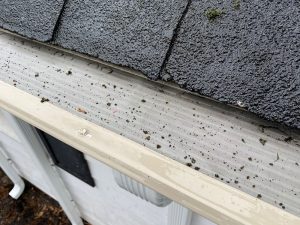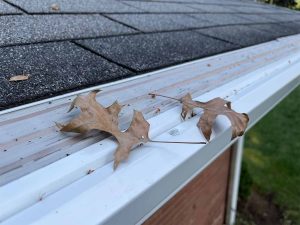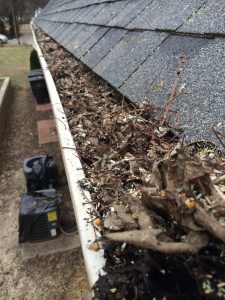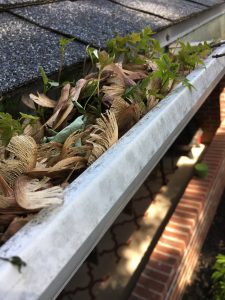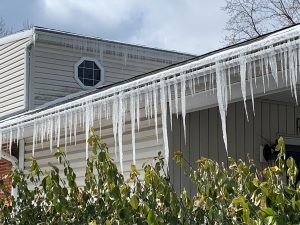April 08, 2011 | By William Hageman | Tribune Newspapers
It’s one of the rites of spring. And of fall too. Homeowners drag out the ladder and spend the better part of a day cleaning debris from their gutters.
One way to avoid the chore is to install gutter guards, products that keep leaves, twigs and other materials from settling in the gutter and causing clogs. The problem is, there are a lot of products on the market. And almost every sales pitch ends with “you’ll never have to clean your gutters again.”
“The more products they look at, the more confused they become,” says Johnathan Skardon, a gutter expert and blogger who has been in the business for almost 15 years. “They hear the same rhetoric from everybody — this is the best product on the market, and you’ll never have to clean your gutters. You need to do your due diligence, so a year from now you won’t be wondering why you bought that product.”
Skardon is the managing director of Gutter Guards Direct, a company that sells and installs four types, from an entry-level product to a high-grade system. He also writes the GutterTalk blog (guttertalkblog.com), which he fashions as a consumer guide.
“From my perspective, I’d rather educate homeowners on what the possibilities are, what the options are,” he says. “It’s something that’s really confusing.”
He says that one reason he started the blog was that the industry had not advanced much, and consumers were getting the same old products in addition to that same old sales pitch. Traditionally, that product was a solid gutter cover. But in the last 10 years, stainless steel micromesh screens have appeared and are gaining favor.
Here are three types of products aimed at keeping gutters clear. Some work well. Some work less well. In many cases, it depends on the type and number of trees around your home. In other cases it depends on the installation. Remember, do your due diligence.
Screens
Made of everything from surgical stainless steel mesh to PVC, they will all work to some degree. It depends on the size of the holes in the screen and how much flotsam and jetsam comes washing down your roof.
Plastic screens, aimed at do-it-yourselfers and priced at less than 50 cents a foot, tend to have larger holes, so more debris slips through. If your home is surrounded by trees, pine needles, oak tassels and maple helicopters can fit through and clog the gutter; so will accumulated granules from shingles. In addition, in the summer, a combination of debris and heat can make the screen collapse into the gutter, though that could be a reflection on faulty installation, not the product.
A smaller mesh screen will block more debris, of course. A medium size screen can be installed for $13 or $14 a foot, Skardon says. But the best screen systems are the mesh ones (there are several manufacturers). They keep even the smallest particles of shingle detritus out. These are not do-it-yourself projects; they’re available only through dealers. Installation fees plus the cost of materials and the manufacturing process bring the price to around $20 a foot, Skardon says.
Surface tension
These systems fit over the gutter; water runs over them and into the gutter, but the debris goes over the edge. It works on the principle of surface adhesion, Skardon says. Water goes from roof to shingle to gutter guard and rolls over it into the gutter. But that small opening for the water can also let in a small percentage of the debris.
Methods of installation vary. Virtually all snap on the edge of the gutter, and some types are fitted under the edge of the shingles, while others are attached to the fascia.
Skardon says $21 a foot (installed) is a typical price, but he has seen prices as high as $30 or $40 a foot quoted. He says that homeowners generally can negotiate those prices down significantly.
Gutter filters or inserts
Made of foam or a brush-like material, these trap debris and let the water in. Installation is relatively easy; sections are simply placed in the gutter. Priced at about $4 a foot, these products can be ineffective if a home is surrounded by a large number of debris-dropping trees.
Copyright 2011. Tribune Newspapers. Courtesy of Chicago Tribune.



